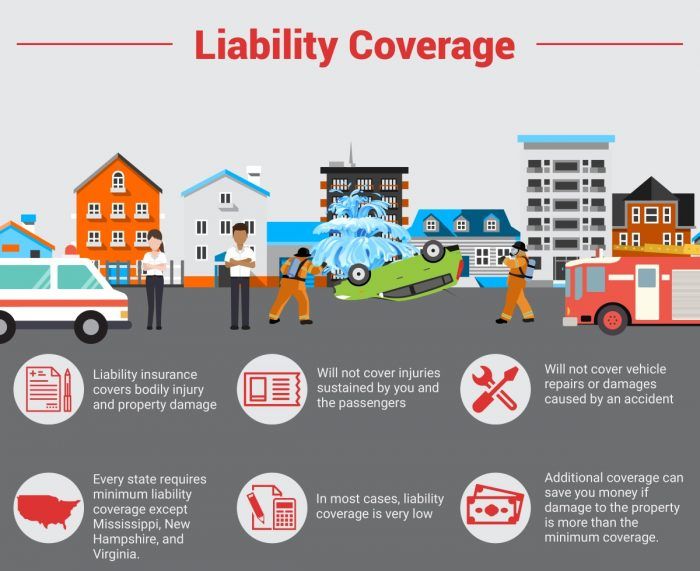Business Insurance for LLCs: What You Actually Need (and What You Dont)
Business Insurance for LLCs: What You Actually Need (and What You Don’t) sets the stage for this enthralling narrative, offering readers a glimpse into a story that is rich in detail with casual formal language style and brimming with originality from the outset.
The content of the second paragraph that provides descriptive and clear information about the topic
Types of Business Insurance

Business insurance is crucial for LLCs to protect against various risks and liabilities. Here are the different types of insurance coverage available for LLCs:
General Liability Insurance
General liability insurance provides coverage for claims of bodily injury, property damage, and advertising injury. It is essential for protecting LLCs from lawsuits and financial losses resulting from accidents or negligence.
Property Insurance
Property insurance covers physical assets such as buildings, equipment, inventory, and furniture from losses due to theft, fire, or natural disasters. It helps LLCs recover and replace damaged property to ensure business continuity.
Professional Liability Insurance
Professional liability insurance, also known as errors and omissions insurance, protects LLCs from claims of negligence, errors, or omissions in providing professional services. It is crucial for service-based businesses to mitigate the risks of legal actions.
Workers’ Compensation Insurance
Workers' compensation insurance provides benefits to employees who suffer work-related injuries or illnesses. LLCs are required by law to have this coverage, ensuring financial protection for employees and the business.
Business Interruption Insurance
Business interruption insurance covers lost income and expenses when a business is unable to operate due to a covered event, such as a fire or natural disaster. It helps LLCs maintain financial stability during periods of interruption.
Cyber Liability Insurance
Cyber liability insurance protects LLCs from losses related to data breaches, cyber-attacks, and other cyber threats. With the increasing reliance on technology, this insurance is vital for safeguarding sensitive information and maintaining customer trust.
Commercial Auto Insurance
Commercial auto insurance provides coverage for vehicles used for business purposes, protecting LLCs from liabilities and damages in case of accidents. It is essential for businesses that rely on transportation for operations.
Umbrella Insurance
Umbrella insurance offers additional liability coverage beyond the limits of other insurance policies. It provides an extra layer of protection for LLCs facing large lawsuits or claims that exceed their standard policy limits.
Factors to Consider

When choosing insurance for your LLC, there are several key factors that you should consider to ensure adequate coverage for your business.
Size and Nature of the Business
The size and nature of your business play a crucial role in determining your insurance needs. A larger business with more employees and higher revenue may require broader coverage to protect against potential risks. On the other hand, a small LLC with minimal assets may have different insurance requirements.
Industry-Specific Risks
Each industry comes with its own set of risks and challenges that may influence the type of insurance needed for an LLC. For example, a construction company may need liability insurance to protect against accidents on the job site, while a technology startup may require cyber liability insurance to safeguard against data breaches.
Legal Requirements
When it comes to running a Limited Liability Company (LLC), there are legal insurance requirements that vary from state to state. It is important for LLC owners to understand and comply with these regulations to protect both their business and personal assets.
State-Specific Insurance Requirements
Each state has its own set of mandatory insurance requirements for LLCs. This typically includes general liability insurance, workers' compensation insurance, and possibly professional liability insurance depending on the nature of the business.
- General Liability Insurance: This type of insurance protects the LLC from claims related to bodily injury, property damage, and advertising injury.
- Workers' Compensation Insurance: If the LLC has employees, this insurance is mandatory to cover medical expenses and lost wages in case of work-related injuries or illnesses.
- Professional Liability Insurance: Also known as errors and omissions insurance, this coverage is necessary for businesses that provide professional services to protect against claims of negligence or inadequate work.
Importance of Compliance
Complying with insurance regulations is essential for LLC owners as it helps protect their personal assets from being at risk in case of lawsuits or claims against the business. By having the right insurance coverage in place, LLC owners can ensure financial security and peace of mind.
Consequences of Non-Compliance
Not meeting the mandatory insurance obligations for LLCs can have serious consequences. LLC owners may face penalties, fines, or even legal action for non-compliance. Additionally, in the event of a lawsuit or claim, not having the necessary insurance coverage can result in financial ruin for the business and its owners.
Tailoring Insurance Coverage
When it comes to protecting your LLC, having the right insurance coverage is crucial. Here are some tips on customizing your insurance to suit the unique needs of your business.
Evaluating Risks and Determining Coverage Limits
- Assess the specific risks your LLC faces, such as property damage, liability claims, or business interruption.
- Consider the potential financial impact of these risks on your business.
- Determine appropriate coverage limits based on your risk assessment to ensure adequate protection.
- Consult with an insurance agent or broker to help you understand your options and make informed decisions.
Bundling Insurance Policies for Cost-Effectiveness
- Consider bundling multiple insurance policies, such as general liability, property, and business interruption, with the same provider.
- Bundling can often result in cost savings through discounts or lower overall premiums.
- Review and compare quotes from different insurers to find the best bundle package that meets your needs and budget.
- Ensure that the bundled policies cover all necessary risks and provide adequate protection for your LLC.
Closing Summary
The content of the concluding paragraph that provides a summary and last thoughts in an engaging manner
Popular Questions
What are the key factors to consider when choosing insurance for an LLC?
LLC owners should consider factors such as the nature and size of their business, industry-specific risks, and compliance with legal requirements.
Why is it important for LLCs to tailor their insurance coverage?
Tailoring insurance coverage ensures that an LLC's unique needs are adequately met, which can help in managing risks effectively.
What are the consequences of not meeting mandatory insurance obligations for LLCs?
Failure to meet mandatory insurance obligations can result in legal consequences, financial losses, and inadequate protection for the LLC owners.




